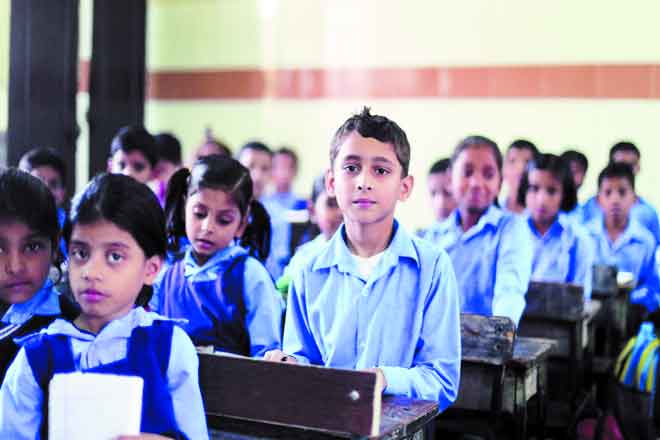The debate about holding children back in a class is one with passionate arguments on either side
The constant flip-flop on the ‘no detention’ till Class VIII policy passed by the Union Cabinet in 2017 is best exemplified by Delhi’s Education Minister Manish Sisodia, who has both criticised and praised it at different times. But Sisodia is not alone, even educationists are deeply divided on whether the policy is good or bad. At the fundamental level, holding a child back in a lower class could detrimentally impact his/her self-confidence and lead to low-esteem later in life but passing a child, who is fundamentally weak in basic literacy such as reading, mathematics and analytical skills, will mean sending someone up the chain who will be too weak to join the job market whenever he/she graduates. However, Sisodia’s main contention is valid, and that is that most Indian schools are ill-prepared to have a ‘no detention’ policy in place right now with low teacher accountability for results. And while the policy is a good one, it is currently too utopian. Thus, the Delhi Government has proposed staggered detentions for the time being, with children possibly being held back in Classes III, V and VIII. And on this, Sisodia is correct because at a very basic level, one has to understand that every child is unique and has different learning abilities, which may or may not be associated with their upbringing. But until a child’s mental abilities are properly assessed, such a policy is detrimental for India’s future workforce. India, for example, has very few special learning schools for children with slower mental development, for instance, almost none in the Government sector and very few in the private sector. The Indian education system, that is geared towards quantity given the scale of young people in this country, is deeply unprepared to deal with children who fall off the bandwagon for whatever reason.
While a ‘no detention’ policy is perfect in a world where teacher-student ratios are ideal and teachers can give more time to those children, who demand more time to develop, India really needs to ramp up its investment in educational institutions that help young children catch up, a ‘no child left behind’ policy in a manner of speaking. Even then, given the scale of the problem, that is the sheer volume of children in India, we cannot continue advocating a ‘one size fits all’ solution over here. Yes, the problem about low self-esteem in later life if a child is held back must be a concern but pushing a child forward when he/she is deeply unprepared for the real world that they will one day have to face, is possibly worse unless India is willing to deal with millions of ‘Studied till Class VIII’ written on job applications. The education system in India is thoroughly broken and while urgent reform is needed across the board, the most urgent fixes are needed at the primary level. It would be wise for more people across India, especially those in education, to listen to Sisodia and his solutions.


























